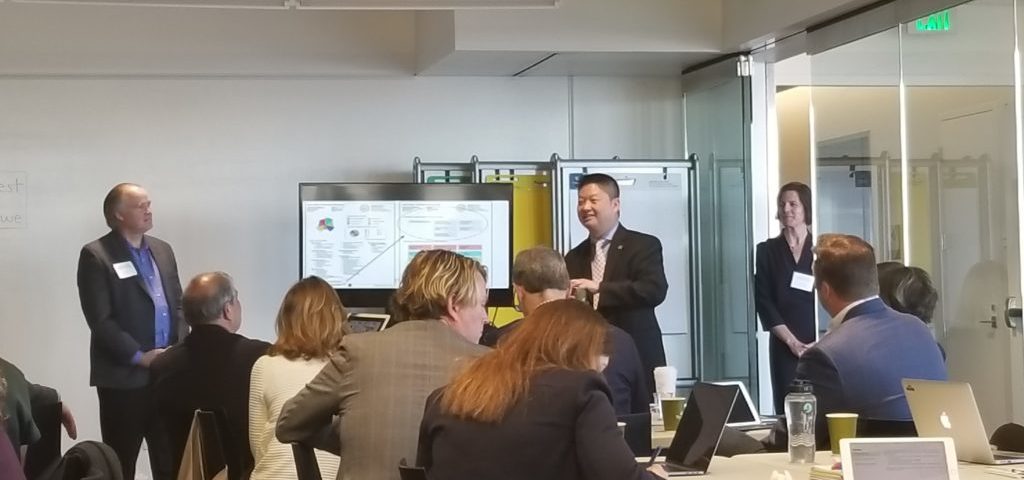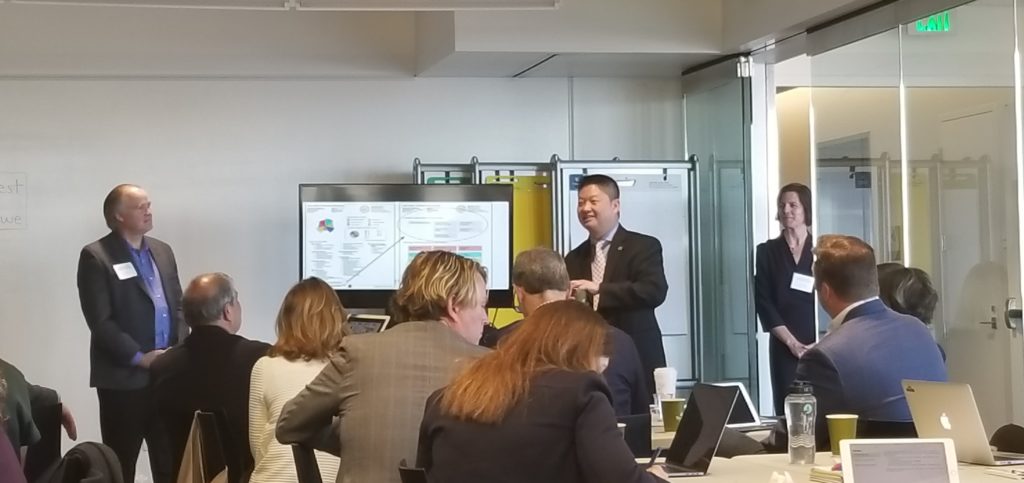Already a member? Log in to the Member Site at members.mastery.org.

MTC Member Voices: Four Design Principles for Mastery Learning
April 10, 2018
Member Voices: Turning an Idea into a Movement
June 15, 2018Boston Public Schools Superintendent Discusses Future of Education


Following is a Q&A with Boston Public Schools (BPS) Superintendent Tommy Chang. BPS is the oldest school system in the country and includes the nation’s first public school, Boston Latin School, which celebrated its 382nd birthday on the day of MTC’s recent visit. The BPS system currently consists of 125 schools serving approximately 56,000 students.
On April 23, 2018, more than 30 members of the MTC network, from locations as far away as Hawaii and London, gathered at Boston Public Schools’ administrative headquarters for MTC’s first Advisory Council meeting. Joining the Council were members of the MTC Board of Directors, including Sujata Bhatt, managing partner of innovation at BPS, and MTC staff. A lively day of discussions about “transforming the high school experience by changing the transcript” kicked off with opening remarks by Executive Director Stacy Caldwell and Founder and Board Chair Scott Looney. Tommy Chang, superintendent of BPS, joined the discussion to share words of welcome and inspiration with the group: “As superintendent, I see that what you guys are doing can fundamentally change what education looks like. These are big questions: What is schooling? How do we measure students? What do we value?” Later we had the opportunity to sit down with Chang for a more in-depth conversation on his vision for students and teachers–and his hope to better serve kids who need us most.
 Q&A
Q&A
In your earlier remarks, you mentioned BPS is the oldest school system in the country–and that the transcript has pretty much remained the same since those early days.
What needs to change most in the transcript?
The transcript of the future should demonstrate authentic products of what young people can do. I envision that transcript to look more like someone’s LinkedIn page–in a digital, résumé format that includes lived experiences and not just a list of coursework. It should demonstrate products that our students have produced. It should show experiences, skills, and accomplishments.
What are you seeing with students today?
Students need to engage with and enjoy what they are learning in school. Young people in the 21st century want to understand their role in the community around them and understand how they can make a difference. Sitting in English class, regurgitating facts doesn’t engage them in truly rigorous work. We want to prepare our young people for adult life–and to do that they need to be practicing what they will do and who they will be as adults. Authentic learning experiences should replicate adult life.
What do you hope for students most of all when they graduate?
I hope that our students have a vision for themselves and a plan to attain that vision when they graduate from our school.
What are your hopes for teachers?
I hope to support our teachers in serving as facilitators of personalized learning, rather than as individuals who convey content. Young people need to take ownership of their learning and our teachers are the ones who are best equipped to facilitate that and give them the feedback they need, so that students can learn better and do their work better.
How do you imagine a mastery-based learning model better serving all students? What will make this work with public schools in particular?
That’s the dilemma for this group: How to operationalize our common philosophy that education should not be about seat time or discreet content–and how to make it work for all schools and all students. Education should be about learning across subjects, personalized learning, the ability to demonstrate skills and content knowledge through authentic tasks. I see MTC working toward these goals, which is why I am here to support MTC as a thought partner in figuring out how this new model will work in schools.
How could this type of approach serve colleges and employers better?
If the transcript serves as a more complete, online résumé of a student, then it will be a better and more powerful communication tool for both employment and college acceptance.
Anything else to add?
As we do this work together, we have to serve communities that are most marginalized. This approach will open up opportunities for kids who need us most–and our work will spread from there.
READING TIP
Superintendent Chang recommends reading the Blog post “Rethinking High School Graduation Requirements: Project & Microcredentials,” on Getting Smart by Tom Vander Ark. Vander Ark is a member of the MTC Advisory Council.




